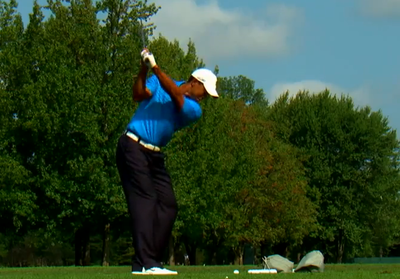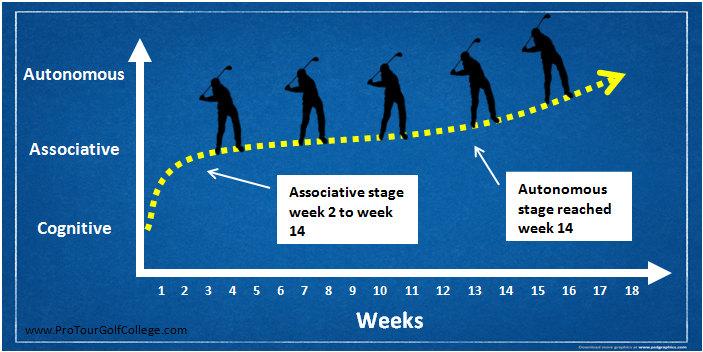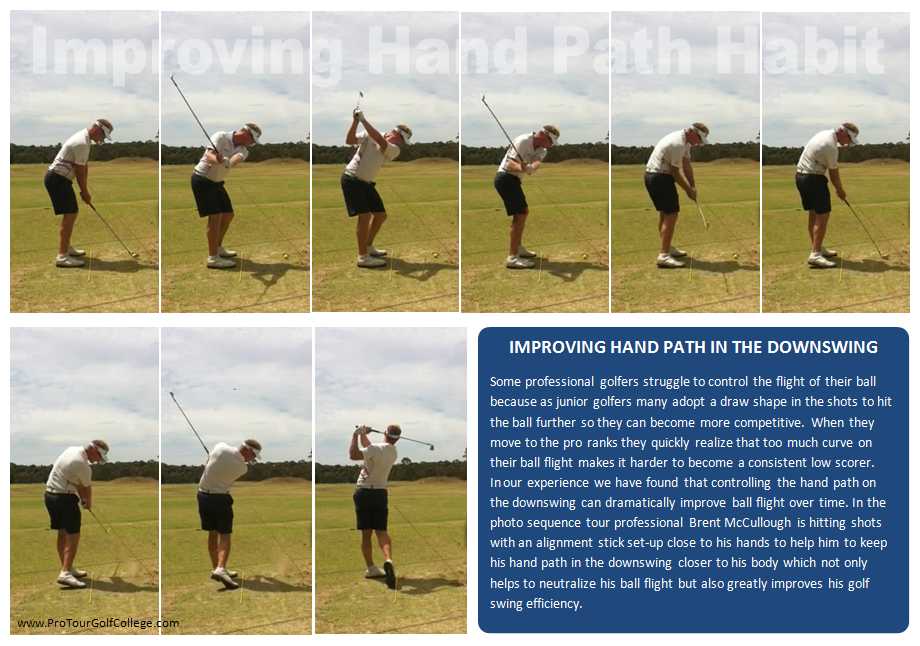 Learning and improving your golf game is really about how you learn to construct useful habits. By useful I mean that these habits help you to move towards the things that you want or need. Everything you do in your life is either an existing habit or is becoming one, and in today’s article I want to share with you the strategy you need to build new habits. So let’s start with a simple definition of what a habit is: A habit is an acquired pattern of behavior that you become almost unaware of. So habits are the things that you do every day that lead you in the direction of the things you want as well as the things you don’t want. Some you have more control over and others less. The thing about habits is that many of them are learned naturally over time and as such are quite difficult to remove when you decide that they don’t provide you with the value you desire. This is the same of golf skill habits. Many golfers struggle with golf skill habits that hold them back from making progress in their game and golf instructors have the task of helping the golfer to acquire more useful and helpful habits.  Quite often the first question that comes to mind for many golfers when learning to improve their game is how long it takes to develop a new habit. We always say that it takes a lot longer than you think. There are quite a few references on Google search to habit formation and the consensus seems to be that it takes around 3 weeks or 21 days to change a habit. But from our experience at Pro Tour Golf College this is a long way from what we have experienced. The success of habit formation in golf depends mostly on the complexity of the skill being learned and how well you perform it each time. There is no fast-track, just repetitions correctly applied. Some recent research on habit forming suggested that automaticity (doing without thinking) is reached at around 66 days. But this was dependent on the task being performed and who was performing it. (Lally et al. 2009). Read more about it here: http://www.spring.org.uk/2009/09/how-long-to-form-a-habit.php Any serious golfer should understand that in any model of change time and repetitions are the key elements of the recipe if they seek continuous improvement. We have found that motivated ambitious golfers are not frightened to attempt change to improve their golf skills, it’s just that they quite often don’t realize the full extent of the change process.
How Do Tour Players Learn New Habits? Like everyone else; slowly and steadily. One of the tour players we work with Brent McCullough has been going through a golf swing change with us at Pro Tour Golf College and we have been monitoring his progress closely over the past few months. The change we are making is changing the direction of his hand path on the downswing to change the way his golf club releases through the golf ball. To reach the stage of automaticity (Doing without thinking) he has been working on one drill routine for the past 16 weeks and only in the last 2 weeks is less conscious of the changes in his swing when he is performing under pressure. Video evidence has shown him that the change is part of his down swing (most times) however he realizes that he will have to continue practicing his hand path drill routine to keep his hands travelling on the path that leads him to more consistent shot-making. The level of complexity of this change process would be described as moderate to high for a number of reasons-the main one being that he is playing full-time on a professional golf tour so incorporating this change has to be managed carefully and thoughtfully. Brent acknowledged that the change was necessary as his golf shots under pressure were hooking more than he wanted and this was leading to a higher score average in tournament play. I explained that his old golf swing pattern was literally the product of thousands of repetitions and as such will be a very strong habit to change. I suggested that the key to developing this new golf swing habit was to focus on changing just one important aspect of his swing at a time and in this case it was his hand path. We devised a simple but suitable drill using a simple alignment stick to move him through the the stages of habit development from the cognitive/associative stage and into the autonomous stage. Brent is an extremely committed individual like most tour professionals we've worked with and knows that to be able to hit the shots he wants to under pressure requires thousands of golf swing repetitions. They know that there are no short-cuts to success in golf, just hard work continually over an extended time period.
The takeaway here is that you to should understand that repetitions correctly applied over time is the key to success at building lasting and useful habits. If you want to develop useful lifelong golf habits then keep your change process simple. The more parts you try to incorporate into your golf technique the longer and more difficult it is likely to be. Add one part and take it to automaticity. Then add another and so on. By applying effort carefully and deliberately you will learn the habits that will help you to be more competitive in golf tournaments. Especially the one's that matter the most. Remember, there are no short-cuts; just lots of repetitions correctly applied is the answer to building great life long golf habits. Lawrie Montague and David Milne - Pro Tour Golf College You Success On Tour Is Our Business 1/12/2012 02:24:16 am
I enjoyed this article very much. I am a teaching pro in the Atlanta area, and emphasis the importance of practice more than anything I do in helping my students. 1/12/2012 04:09:42 am
Hi Stan, Comments are closed.
|
Archives
June 2019
|
||||||
Proudly Supported By
Copyright © 2011 - 2018 Pro Tour Golf College
Website Managed By Golf Performance Media
All Rights Reserved
Website Managed By Golf Performance Media
All Rights Reserved



 RSS Feed
RSS Feed



